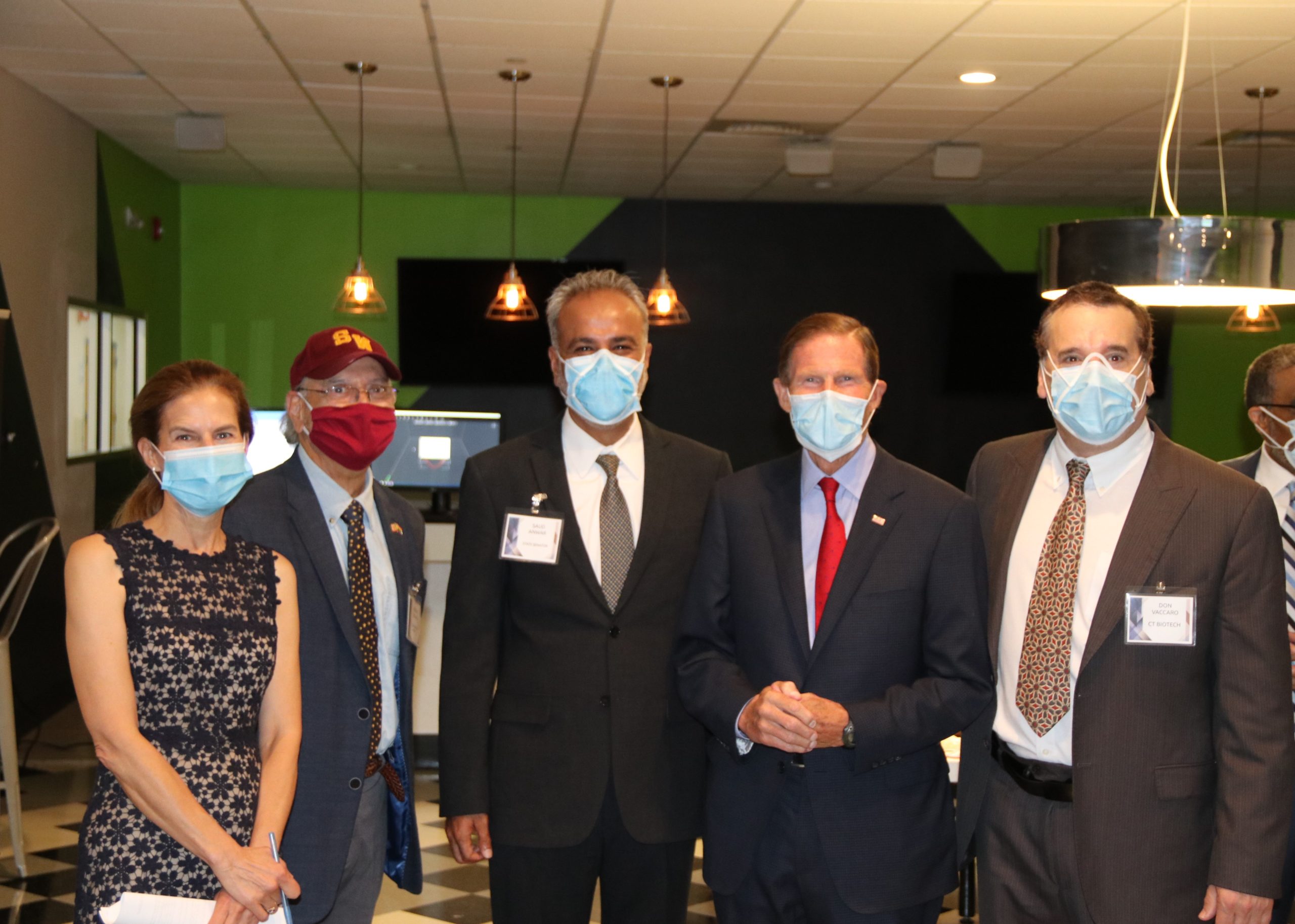Senator Anwar Joins Gov. Lamont, Lt. Gov. Bysiewicz, Sen. Blumenthal, UCONN Health Officials in South Windsor as CT Biotech Reveals 3D-Printed Mask Frames to Protect Public

Senator Anwar speaks Wednesday at Connecticut Biotech
Today, State Senator Saud Anwar (D-South Windsor) joined a distinguished group of Connecticut state, town, education and health leaders including Governor Ned Lamont, Lieutenant Governor Susan Bysiewicz, U.S. Senator Richard Blumenthal, University of Connecticut President Tom Katsouleas, UConn Health research team leader Dr. Cato T. Laurencin and Connecticut Biotech CEO Donald Vaccaro at Connecticut Biotech in South Windsor, a new innovative startup. Connecticut Biotech is producing 3D-printed face mask frames designed to sharply improve the efficiency and effectiveness of face masks and to better protect educators, health care workers and members of the public from the pervasive threat of COVID-19.
“Our state needs a post-COVID economy and post-COVID capacity to create jobs while saving lives at the same time. I want to celebrate Don Vaccaro’s fearless entrepreneurship to move this forward. The sooner we do this, the sooner we save lives,” said Sen. Anwar. “When we wear masks, there should be no doubt that it’s a critical need. The duration of time we wear masks is increasing, especially with teachers and students going back to class. We are in the right place at the right time to do the right thing. For adults, these frames will ensure several things about masks; that they are efficient, comfortable and make sure you can be heard while wearing them. Putting all these things together, this is phenomenal. These masks are a way to celebrate Connecticut business and protect against COVID-19 at the same time.”
As Vaccaro explained in an introduction and brief presentation, the 3D-printed mask frames are created individually based off images taken of a person’s face. They are then printed in a process taking about three hours. The frames, which are fastened over a facemask the wearer chooses, create a seal around the mask that can improve the efficiency of surgical and cloth face masks by significant rates, potentially providing as much protection against COVID-19 as a high-quality N-95 mask with certain surgical masks being used. Sen. Anwar said he has used one since the beginning of August and mentioned it is comfortable and easy to breathe in.
The University of Connecticut, led by Dr. Laurencin, developed technology to create custom mask frames making regular surgical masks more protective and helping secure mask filtration. The university has worked since the pandemic began, including submitting a patent application in mid-April, to develop facial-recognition software to pinpoint 3D-printing specifications for custom-fitting masks. Connecticut Biotech has started manufacturing and selling limited mask frames to refine and improve the development process before expanding distribution for larger-scaler distribution later this year.
Leaders toured Connecticut Biotech’s 3D-printing laboratory, where Sen. Blumenthal began the process of having a frame printed, which requires just two photographs to be taken and submitted to Connecticut Biotech. They also learned more about the technology being used, including strategies being developed to allow for increasing frame production.

From left, Lieutenant Governor Bysiewicz, South Windsor Mayor Andrew Paterna, Senator Anwar, U.S. Senator Blumenthal and Connecticut Biotech CEO Don Vaccaro stand together in the biotech company’s 3D-printing laboratory.
